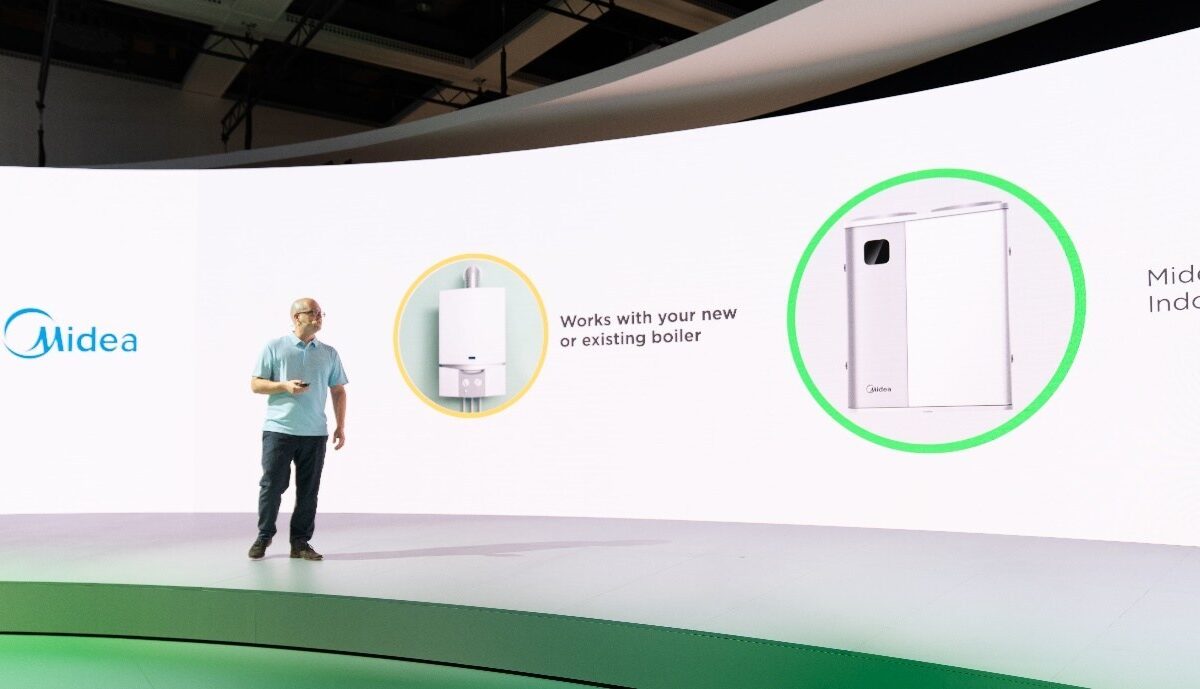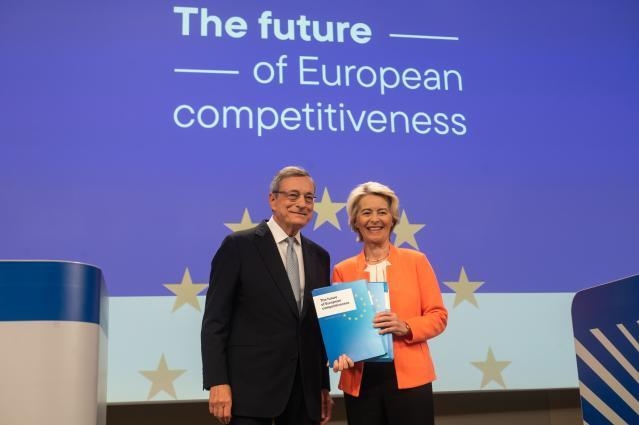Mario Draghi and Ursula von der Leyen
Image: European Commission
Mario Draghi, the former president of the European Central Bank (ECB), has urged EU member states to support local production for Europe’s energy transition in a new way. report published by the European Commission. He also warned against completely closing the European cleantech market to Chinese products and technologies.
Draghi said it is unlikely the solar industry will be able to meet demand if Europe shuts out Chinese cells and panels. He warned that excluding Chinese products could hinder the industry’s ability to scale up and meet European clean energy goals.
“Significant overcapacity is expected: by 2030, China’s annual solar photovoltaic (PV) production capacity is expected to be double global demand, and for battery cells it is expected to be at least at the level of global cover question. ‘, the report said. “The EU is already seeing a sharp deterioration in its trade balance with China, mainly reflecting imports of electric cars, batteries and solar products. While rising bankruptcies in China indicate that the economy is entering a phase of industrial consolidation, overcapacity is likely to persist, especially given continued weakness in household consumption and high savings rates.”
The report states that countries such as India and the United States have raised trade barriers against Chinese cleantech products, likely shifting Chinese excess capacity to the EU market. It warned that following the US approach of blocking Chinese technology could delay the energy transition and drive up costs for the EU economy.
However, the report also noted that a purely ‘laissez-faire’ approach may not be ideal for supporting domestic supply chains in Europe. According to ECB simulations, if China were to subsidize its electric car industry as it did with solar energy, European EV production could fall by 70%, and the global market share of EU manufacturers could fall by 30 percentage points.
Draghi said European countries should pursue a mixed strategy, combining foreign direct investment (FDI) with trade measures to counter the cost advantage created by foreign subsidies such as those from the Chinese government. He said balancing these approaches will be critical to maintaining competitiveness in the cleantech sector.
“Here the EU should aim to increase the long-term “bankability” of new investments in Europe, for example by applying local content requirements, and ensuring a minimum level of technological sovereignty,” the report said . “The latter can be achieved by requiring foreign companies that want to produce in Europe to enter into joint ventures with local companies.”
The report also urged the EU to create a “joint plan” that aligns all policies with the bloc’s objectives. The need for a coordinated approach was highlighted to ensure consistency and effectiveness in achieving the European Union’s objectives.
This content is copyrighted and may not be reused. If you would like to collaborate with us and reuse some of our content, please contact: editors@pv-magazine.com.
Popular content



